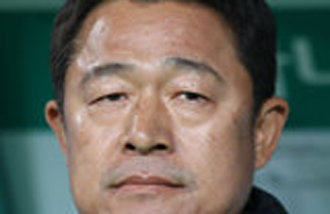Dilemma with President Yoon Suk Yeol’s 10th veto
Dilemma with President Yoon Suk Yeol’s 10th veto
Posted May. 04, 2024 07:28,
Updated May. 04, 2024 07:28
The political landscape in South Korea is currently marked by a significant conflict. South Korean President Yoon Suk Yeol has practically expressed his intent to exercise his veto power on the special prosecution law, a law that passed a regular session of the National Assembly on Thursday. President Yoon has stated that it would be a dereliction of his duties as a president not to exercise his veto right. This stance has put him at odds with the leader of the Democratic Party of Korea, Lee Jae-myung, who is pushing for the adoption of the special prosecution law by asserting that those who reject it are the guilty ones. The conflict between President Yoon and Lee, who initially sought to work together after their first meeting on Monday at the presidential office in Yongsan-gu, is now a matter of exercising the veto right.
According to the presidential office and the ruling party on Friday, the president talked to senior advisors about the need to exercise the veto right by adding that adopting the bill that hasn’t been agreed upon between the ruling and opposition parties would be a dereliction of presidential duties and leave a bad precedence. The presidential office’s stance is that the special prosecution is appropriate as the Corruption Investigation Office for High-ranking Officials and the police are conducting an investigation according to the due procedures. “The Corporal Chae special prosecution law is missing two steps,” said Senior Presidential Secretary for Political Affairs Hong Cheol-ho. “It is different than the special law on the Itaewon crowd crush in two aspects. The first problem is that it would disregard the investigation being conducted by the Corruption Investigation Office for High-ranking Officials, and the second is that there is no agreement between the ruling and opposition parties,” he added. “As a president with a legal background, he cannot take these issues lightly.”
On the other hand, Lee said during the party’s supreme council meeting that the current president and ruling party have consistently said that those who reject the special prosecution are the guilty ones for years. “I believe (the president) won’t reject it as he is not guilty,” Lee added. “I will immediately push ahead with the bill rejected by the president as soon as the 22nd National Assembly is launched,” said the new floor leader of the opposition party, Park Chan-dae. “If the president vetoes the special prosecution law, it would be a direct refutation to the public sentiment expressed through the April 10 general elections.”
President Yoon's decision to veto the special prosecution law, a decision that must be made within 15 days after the bill is passed by the National Assembly and transferred to the government, carries significant implications. As he continues to deliberate the issue for about two weeks, the potential consequences of his veto on his political standing become increasingly apparent. President Yoon has already vetoed nine laws since his appointment, a fact that some members of the ruling party fear could reinforce the perception of his stubborn and arrogant personality. This perception was considered one of the factors for the ruling party’s devastating defeat in the general elections. The general public sentiment in favor of the special prosecution law also cannot be ignored. If some members of the ruling party vote against the overall direction of the party during a re-vote at the National Assembly after the president exercises his veto right, his control over the ruling party will further decrease, weakening his power to manage state affairs.
이상헌 기자 dapaper@donga.com
Headline News
- Iran blames US sanctions for helicopter crash that killed president
- Pres. Yoon vetoes investigation into death of marine
- “Croatia Holds a Business Forum in Seoul…Looking forward to the development of trade relations”
- Samsung names new chief for semiconductor business
- Seoul City plans to expand welfare benefits







